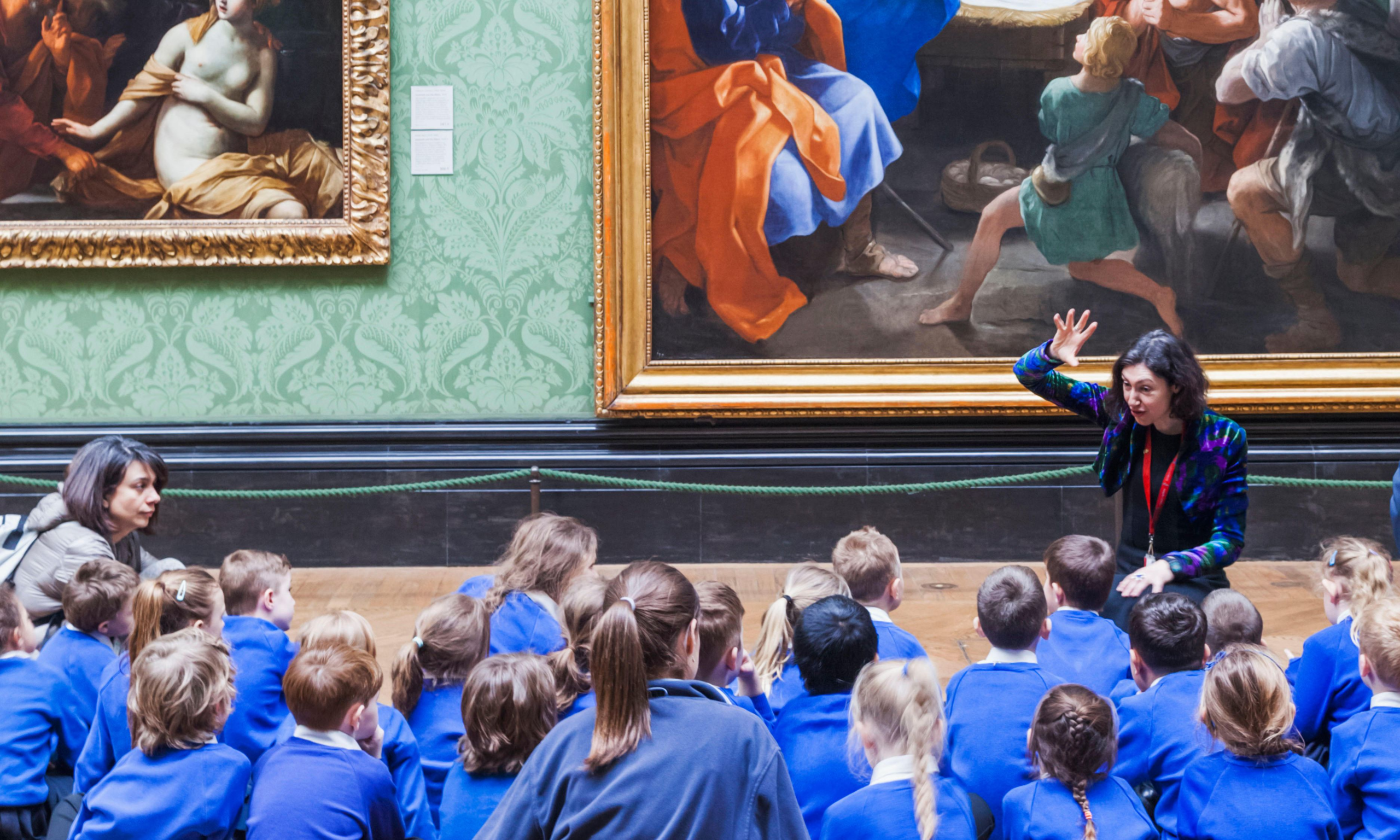A class of schoolchildren at London's National Gallery Photo: Steve Vidler; Alamy Stock Photos
Britain is a great creative nation known around the world for our arts, culture, music, screen and sports success. The creative and design economy is booming. From Cool Britannia to the Communications Act, to free museums and more, Labour nurtured the creative and cultural sectors in government. Yesterday we set out ambitious plans to reform our education system to embed creativity for all in schools.
A core ambition of the next Labour Government will be to ensure that no matter where a child is born or what their background is they have the chance to work hard and get on. Subjects like music, art, sport or drama must be available to all our children not just some.
Under the Conservatives, for too long the importance of the arts, culture and creativity in our education system has been overlooked and downgraded. Creative subjects have been squeezed out of the curriculum, with philistine Ministers devaluing their importance.
The same too, can be said for the importance of these sectors to our economy. Despite being larger than automotive, aerospace, and life sciences combined, the creative industries have been treated like Cinderella sectors by a Conservative government that is more comfortable with stoking the culture wars than championing culture as a key to economic growth and vibrant and valued places.
Access to the arts, in all their varied forms, can open children’s eyes to new possibilities, give young people more opportunities, and ensure that school leavers have the confidence, critical thinking, and life skills that are so valued by employers and for their later lives. That’s as true for working class kids as those whose parents can afford private music or art tuition. That’s why last week [leader of the opposition] Keir Starmer unveiled plans to introduce more creative arts, digital and speaking skills to the curriculum to ensure young people leave school ready for work and for life.
Nurturing and harnessing creative subjects is also critical to ensuring that we have the skills and talent pipelines in place for young people to access the creative and digital jobs of the future, that are growing faster than the rest of the economy but held back by huge vacancies. Too often young people and their parents are told creative jobs are not for them, despite huge opportunities in the UK’s booming screen sectors such as film, TV or gaming.
Creative skills underpin other sectors too, with problem solving and design skills an important enabler across the rest of the economy, underpinning innovation. Our digital and tech sectors are all crying out for a more creative curriculum which incubates talent. Apple’s success is not just down to product, but design, marketing, and understanding how users interact and behave, all skills linked to creativity.
Rather than being a closed shop to creativity and culture as the current government is, Labour will put the arts and culture centre stage. As part of Labour’s mission to break down barriers to opportunity, we will ensure a broad and rich school experience at all ages and stages. So that children and young people don’t miss out on subjects such as music, art, sport and drama we will review the curriculum in government, and as a first step we will get more children learning a creative or vocational subject to 16. This will inspire young people and open their eyes to the possibilities of jobs in the performing arts, theatre, architecture, design and digital.
Alongside this focus on widening access to creativity in schools, Labour will address the skills crisis so that the huge skills gaps in the creative industries and cultural sectors can be closed. Labour’s reformed Growth and Skills Levy will give organisations the flexibility they need to train the workforce and deliver growth. But the creative industries have to act to ensure they are keeping up with the times and represent diverse, modern Britain in all its glory. The sector must work to open pathways and ensure that work is more secure so that it is open to anyone, not just those who rely can rely on the bank of mum and dad. As Keir said so powerfully last week, we’ve got to tackle the ‘class ceiling’ so that all children have the chance to flourish and succeed.
Labour will build a creative Britain with art and culture centre stage as we open up opportunity for young people, grow our economy, and back our creative and cultural sectors to surge ahead.
Lucy Powell is the Labour MP for Manchester Central, and the Shadow Secretary of State for Digital, Culture, Media and Sport

